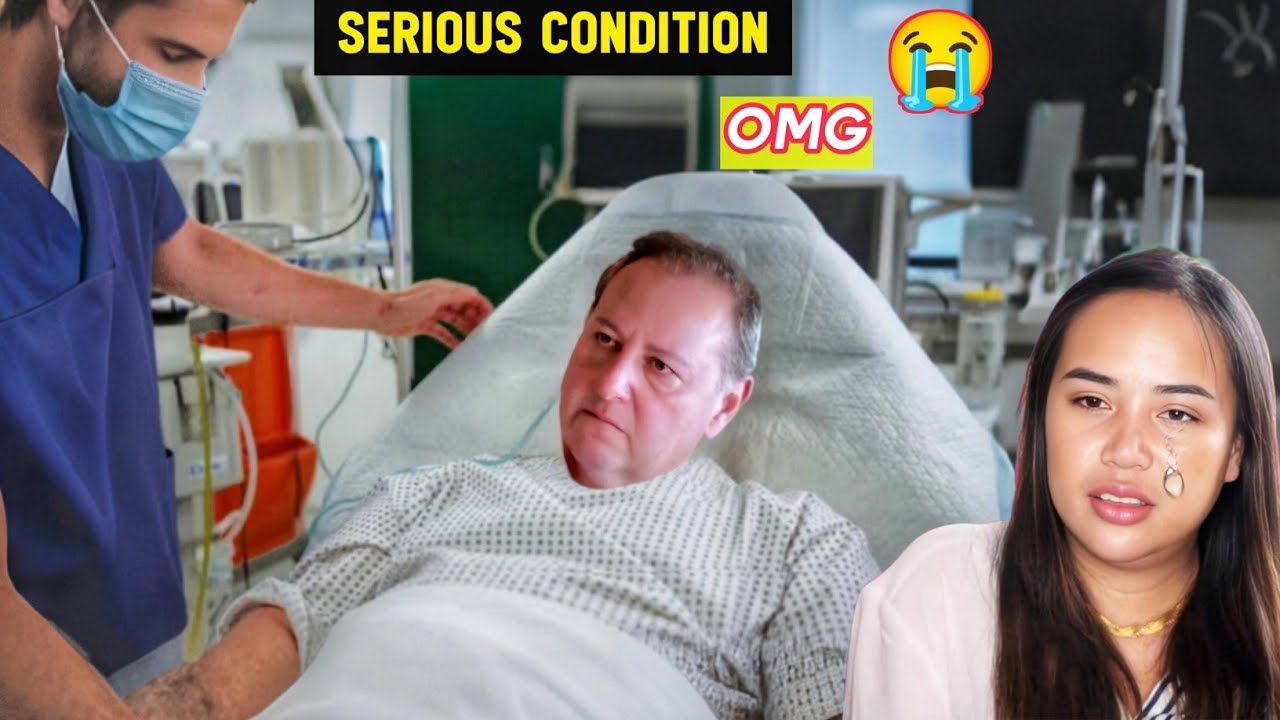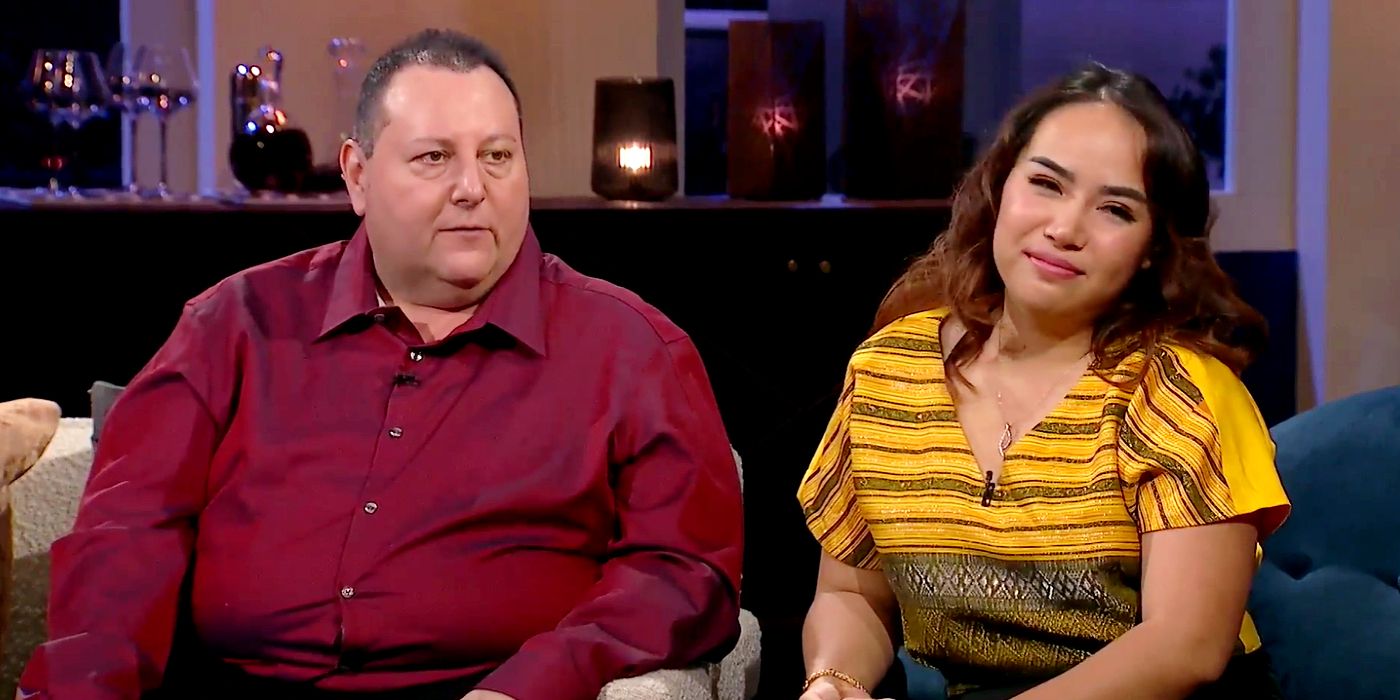Screaming & Tears: David Suffers Massive Heart Attack – Annie’s Breakdown Is Truly Devastating!
One pair created something unique in the kaleidoscope universe of 90 Day Fiancé, where love sometimes flickers with the unpredictable intensity of firelight. David Toborowitz and Annie Suin chose their relationship—not just fell in love—over and again, across seas, across struggles, and through years that sought to exhaust them.
Theirs was never a whirlwind romance. It was an ascent—a trip across disillusionment, reinventions, atonement, and finally, happiness. The cameras tracked their joy, their bickering, and their blending of dreams and cultures for years. Yet, the intimacy created in stillness was something those cameras missed completely.
During struggles and the quiet, worn-out times, they hugged each other—not because they had to, but because they couldn’t stand to not. Three months ago, when Annie delivered their daughter, it felt as though the cosmos had at last exhaled. Dreams were realized, an answer to a prayer.
She was little, weak, and perfect. David started crying the instant he saw her. Holding her for the first time, his hands shook as he kissed her forehead and murmured, “You’re my miracle.” Breathing heavily from labor but radiant with love, Annie stretched for his hand. In that instant, they were whole.
But fate tests the things we value most. What started as tiredness was written off as typical—after all, newborns are not known for sleeping through the night. Always one to put others first, David waved it aside. For Annie, he wanted to be robust—for their baby, for the house they had erected on tenacity and hope.
But behind the jokes was something deeper, expanding, unseen. One night, David froze in the corridor of their house while Annie gently sang to the infant in the nursery. His breath caught, his view contracted, and he dropped.
Annie will never forget the sound of his body striking the ground—not in this lifetime. She screamed his name, crawled to his side, and tried to rouse him. His skin was chilly, his lips white. The infant began to wail in the background, but all Annie could hear was the sound of her own heart screaming in fright.
The ambulance ride felt like a tunnel—bright, clean, and unceasing. She held David’s hand the whole time, murmuring prayers in Thai, in English—bits of hope broken on his chest as her tears dropped. He remained silent.
Words came fast in the emergency room: cardiac event, unstable rhythm, possible damage. Then the machinery arrived, and the lines came. Annie sat next to him for what seemed like an eternity. Their daughter slept in a nurse’s supplied bassinet. Annie stayed put, not once leaving that chair. She grasped David’s cold fingers with one hand and nursed her child with the other.
Every hour of the day, she murmured to him, “Baby, you said you would stay. You said you would dance at her wedding. You said we would age together.”
David did not respond. Yet Annie remained seated in that chair every morning and evening. She watched the displays, followed every blink and beep—not because she understood them, but because it was the last sound she had left of him. She committed the rhythm of his heart to memory.
Friends dropped by, but Annie was far away—lost between the horror of losing the man who had created her world and the love of a newborn. Her eyes turned empty, her voice thin, her skin pale and worn with tiredness. She was breaking, but she would not shatter.
Annie had survived before. This was familiar territory. She had come out of poverty intact, faced examination and loneliness in a foreign land, and stood beside David when he had nothing. She would do it again.
The doctors spoke with cautious hope. “There is damage. But he is young enough; there is time. He’s not out of the woods yet.”
But Annie didn’t need promises. She just wanted her husband back.
One morning, twelve days after his collapse, something changed. David blinked. He spoke—quietly, painfully—but didn’t smile. He turned to face her, his eyes meeting hers. That was enough.
The floodgates opened. Annie sobbed into his arm, collapsing to her knees next to the bed, whispering, “You came back. You came back to us.”
David struggled to speak. His throat was dry, so he simply squeezed her hand instead. It was enough.
That moment became the axis around which their world began to spin again—slowly, unsteadily, but forward.
There was a war ahead. David could barely walk. His heart strained with every breath. He couldn’t hold his daughter for long. Feeding her made his hands shake, and his voice trembled when he tried to hum lullabies. Once tall and vibrant, he now moved like porcelain.
Annie had to be everything at once—wife, nurse, mother, and soldier. She kept her tears hidden, smiled when needed, and stole moments to cry in the bathroom sink while David rested and the baby slept. She battled guilt, grief, and frustration. She loved him, but she mourned the man he had been.
And yet, she remembered why she stayed. Every time he looked at her, full of apology and love, she knew.
True love is not perfection. It is tenacity. It is sacrifice. It is seeing the one you love break and choosing to help them rebuild.
David grew stronger—five steps, then fifteen, then a slow walk down the hall. He held his daughter without falling. He laughed again. And one day, after weeks of effort, they danced in the kitchen. Annie held him up as much as the floor did in a clumsy, awkward two-step.
From her high chair, their daughter watched with blank innocence. She would never remember this, but Annie would never forget.
This is the story they don’t tell you—not on TV, not on Instagram. It’s the story of what happens after the miracle. It’s the story of what it truly means to love someone—in sickness and in health.
David and Annie are here. And this is what love looks like when it doesn’t run. This is what love looks like when it stays.






:max_bytes(150000):strip_icc():focal(939x225:941x227)/david-annie-after-90-days-120622-2-43eae255078c4878995adcc1d3936bec.jpg)
